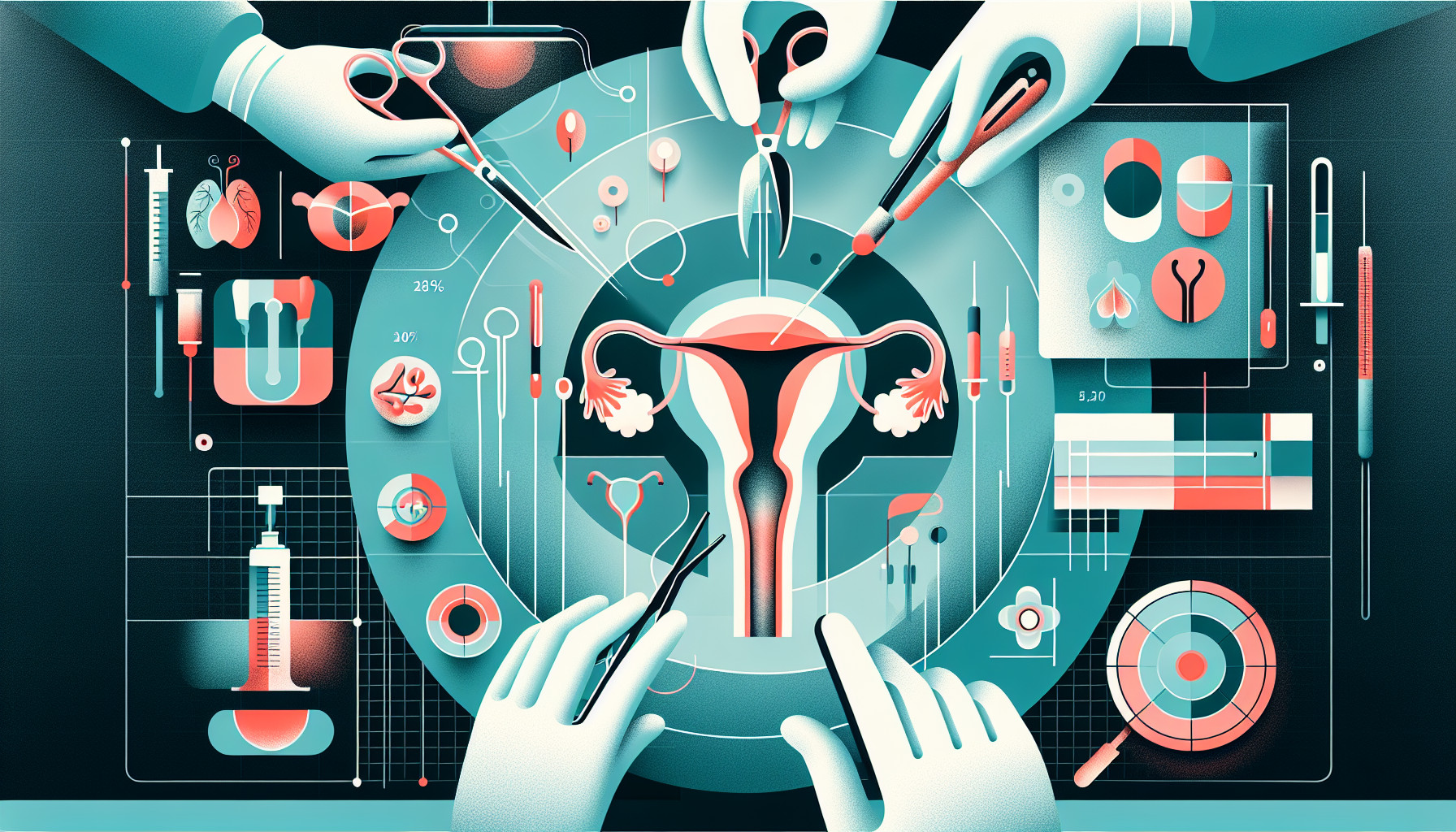Our Summary
This research paper looks at the rare occurrence of urethral cancer developing after a surgical procedure called urethroplasty, which is used to treat a condition called urethral stricture. The researchers collected data from 14 individuals, including one from their own institution, who had developed a type of urethral cancer known as squamous cell carcinoma after undergoing urethroplasty. The findings show that patients and medical professionals need to be vigilant about symptoms such as issues with urination or the development of a fistula - an abnormal connection between organs - even if these symptoms occur a long time after the surgery. The hope is that by making people more aware of this potential complication, it can be identified and treated earlier.
FAQs
- What is urethroplasty and why is it performed?
- What is the connection between urethroplasty and squamous cell carcinoma of the urethra?
- What symptoms should patients be vigilant about after undergoing urethroplasty?
Doctor’s Tip
A helpful tip a doctor might tell a patient about urethroplasty is to be vigilant about any changes or symptoms that may indicate a potential complication, such as difficulty urinating, pain during urination, or the development of a fistula. It’s important to report any new or worsening symptoms to your healthcare provider promptly so that any issues can be addressed and treated early on. Regular follow-up appointments with your doctor are also important to monitor your recovery and overall health.
Suitable For
Patients who are typically recommended urethroplasty are those who have been diagnosed with urethral stricture, which is a narrowing of the urethra that can result in difficulty urinating. Urethroplasty is often recommended for patients who have not responded to other treatments such as urethral dilation or urethrotomy. Additionally, patients with complex or recurrent urethral strictures may also be recommended for urethroplasty.
Timeline
Before urethroplasty:
- Patient experiences symptoms of urethral stricture, such as difficulty urinating, frequent urinary tract infections, and urinary retention.
- Patient undergoes diagnostic tests, such as urethral imaging and uroflowmetry, to confirm the diagnosis.
- Patient and healthcare team discuss treatment options, including urethroplasty, a surgical procedure to widen or reconstruct the narrowed urethra.
After urethroplasty:
- Patient undergoes urethroplasty surgery, which may involve different techniques such as urethral dilation, end-to-end anastomosis, or grafting.
- Patient goes through post-operative recovery, which may include catheterization, pain management, and follow-up appointments with the healthcare team.
- Patient experiences improvement in symptoms and quality of life after successful urethroplasty.
- Patient follows up with regular check-ups to monitor for any complications or recurrence of urethral stricture.
If urethral cancer develops after urethroplasty:
- Patient may experience symptoms such as blood in the urine, pelvic pain, or changes in urinary habits.
- Patient undergoes diagnostic tests, such as biopsy and imaging studies, to confirm the diagnosis of urethral cancer.
- Patient may require additional treatment, such as surgery, radiation therapy, or chemotherapy, depending on the stage and extent of the cancer.
- Patient and healthcare team monitor for any recurrence or complications of urethral cancer, and provide ongoing support and care for the patient.
What to Ask Your Doctor
Some questions a patient should ask their doctor about urethroplasty include:
- What is the success rate of urethroplasty for treating urethral stricture?
- What are the potential risks and complications associated with urethroplasty?
- How long is the recovery period after undergoing urethroplasty?
- Are there any lifestyle changes or restrictions I need to follow after the procedure?
- How often will I need follow-up appointments after urethroplasty?
- What symptoms should I watch out for that may indicate a complication or potential development of urethral cancer?
- How common is it for urethral cancer to develop after urethroplasty?
- What steps can be taken to reduce the risk of developing urethral cancer following urethroplasty?
- Are there any alternative treatments for urethral stricture that I should consider?
- Can you provide more information about the specific type of urethroplasty procedure that will be performed and how it will benefit me?
Reference
Authors: D’Amico MJ, Shumaker AD, Chung PH. Journal: Urology. 2022 Nov;169:218-225. doi: 10.1016/j.urology.2022.07.032. Epub 2022 Jul 29. PMID: 35914585
